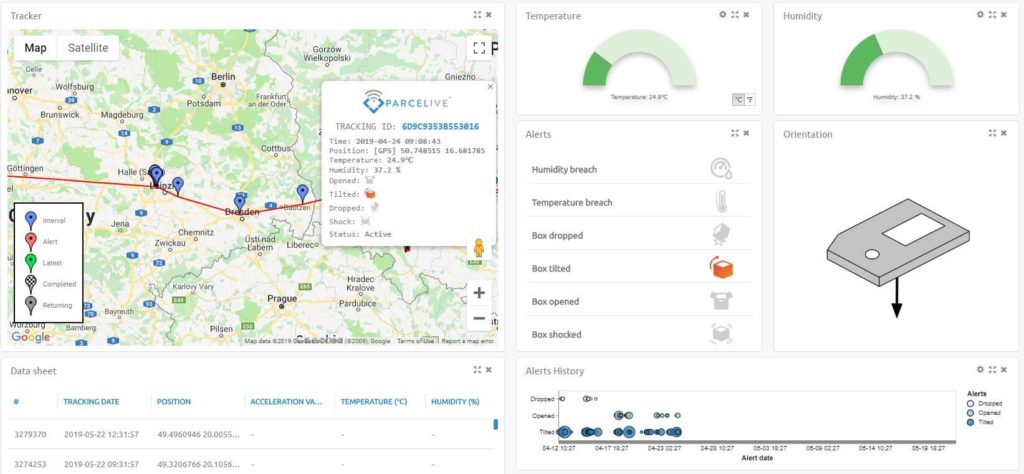It is the fool who thinks his all-inclusive resort is serving him and his guest’s cocktails and martinis that feature the appropriate amount of alcohol per unit.
And while one would be hard-pressed to find this sort of admission in the fine print or disclaimer of a legally binding contract prior to embarking on a cruise or island getaway, it most certainly has been an unspoken agreement between imbiber and provider for years if not millennia.
Given the recent headlines, though, and the potentially insidious introduction of not only watered-down alcohol, but tainted booze by suppliers looking to boost their margins, this all could change.

So, when, not if, counterfeit goods, alcohol, pharmaceuticals, and footwear hit the supply chain and land in a customer’s home, or worse still, their body, who is to be held accountable should the outcome prove deadly?
Read on to learn more about how Hanhaa’s ParceLive software- and hardware-based solution has the ability to not only protect your firm’s bottom line and brand image when faced with the potentially disastrous legal implications of shipping poisoned products, but also ensure integrity within and across the global supply chain, of which we are all members.
How we got here:
Shipping high-value or luxury goods has always carried with it an increased probability, if not outright likelihood, that the criminally-minded will look to earn a little extra by passing off counterfeit products so as to keep the originals and pocket the difference.
This holds true as much today as it did thousands of years ago when one considers the origins of global shipping routes and the deceit that seemed to always follow merchants and traders who were wont to deceive their agent or customer by peddling inferior products.
This has become increasingly prevalent, however, due to the rapid increase in online commerce coupled with smaller shipments and increasingly connected supply chains.
The Organisation for Economic Co-operation and Development (OECD) recently reported that aside from potentially tainted pharmaceuticals and foodstuffs entering global supply chains, illicit trading in fakes has gone from less than 2.5 percent of total international trade to more than 3.3 percent in little under five years.

What’s more, customs officials and governments are unable to agree on how best to police this threat or enforce laws preventing the movement of such goods.
Consider that countries heavily dependent upon trade, such as Singapore, frequently reverse decisions by high courts in the European Union so as to avoid both culpability as well as decreases in trade that could hurt their fiscal bottom line.
That said, shippers have the technological power now, more than ever, to take back control over the integrity of their supply chains by utilizing secure software- and hardware-based solutions.
Why security matters and how ParceLive can help:
If it hasn’t been made clear already, shippers are at an increasing risk of being seen not only as the source of tainted products and counterfeit goods, but also, and sadly, the enablers of products meant to do harm.
What’s more, it is no longer enough for the supply chain manager to rely on government protections against such bodily harm claims, which means having to wrest control back in protecting a firm’s brand image.
This is where Hanhaa’s ParceLive and XG product lines afford shippers, importers, freight-forwarders, and the like, the ability to securely monitor the movement of products and goods without data streams ever crossing into the public sphere.

This means that should their been a dispute, resolution can occur swiftly and efficiently with still more data showing, again, when, not if, a parcel was tampered with or exposed to light, temperature fluctuations, unanticipated quarantines, mishandling, or worse.
Preventing intellectual property theft:
Hanhaa is also working hard to get out ahead of the criminally minded and remains on the cutting edge of innovation when it comes to securing not only the physical movement of smaller and smaller packages, but affording shipping companies with the ability to join networks that prevent the theft of intellectual property.
ParceLive, coupled with XG, even goes so far as to empower shippers to deploy this software solution on their own platforms and, in so doing, hold their upstream and downstream partners equally accountable so as to avoid the unintended movement of pirated information and communication technology (ICT) devices and goods.
While technology is certainly no panacea when it comes to practices predating the Parthenon, being able to monitor, in real-time, the movement of goods around the world is an easy way to prevent criminal claims now as well as in the future.
Conclusion:
The above article should not scare you or your supplier into quick or cursory compliance with international shipping standards or best practices, so much as result in a pause (hopefully over a martini or cocktail in a bar) in looking to ensure you are employing the latest in smart tech to avoid legal issues in the future.
That said, Hanhaa offers a suite of products to fit your needs, improve trust throughout your supply chain, and, perhaps, lead to a higher quality drink the next time you find yourself down at the local.








